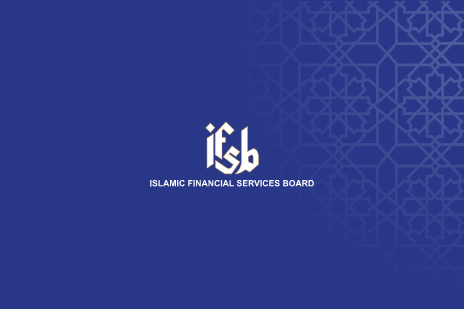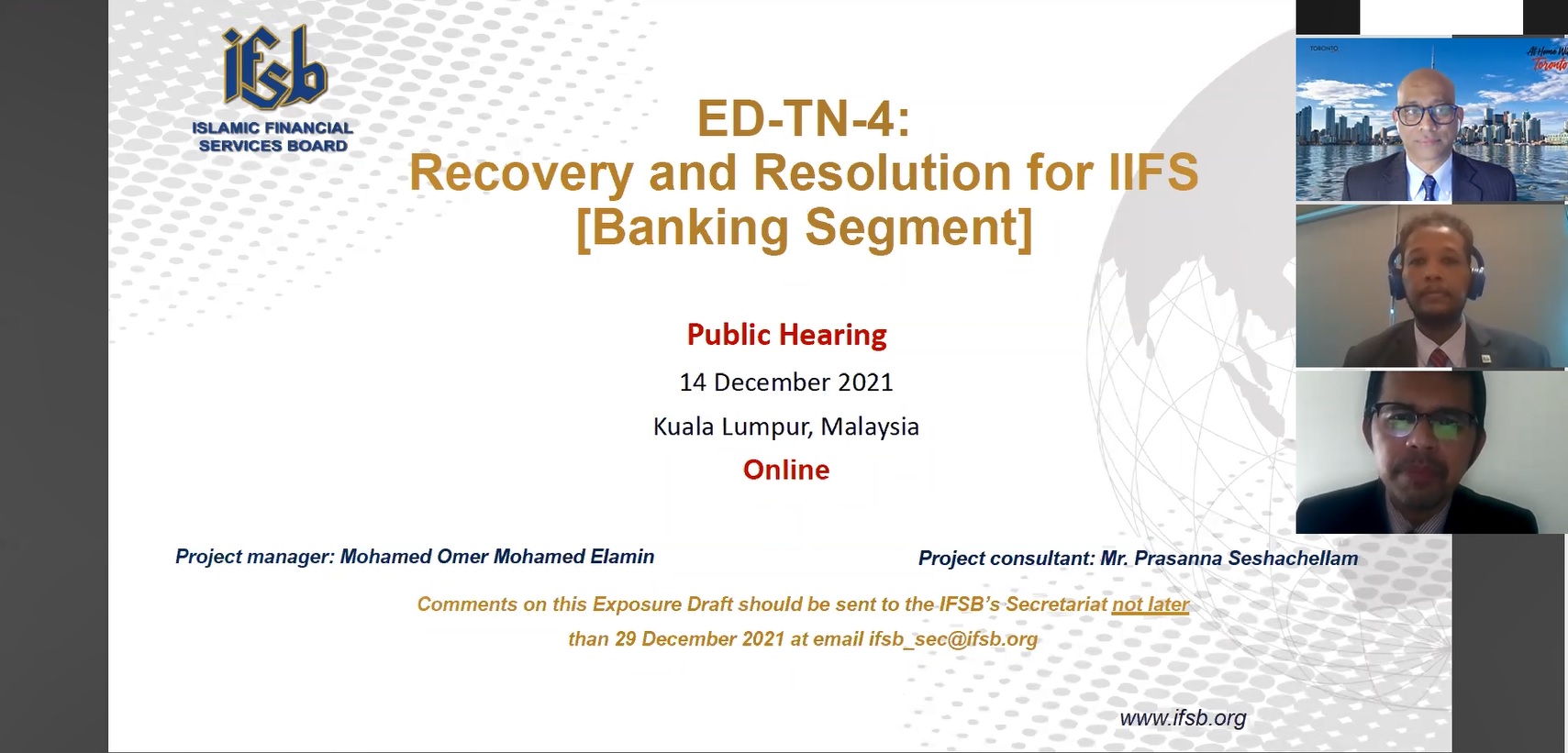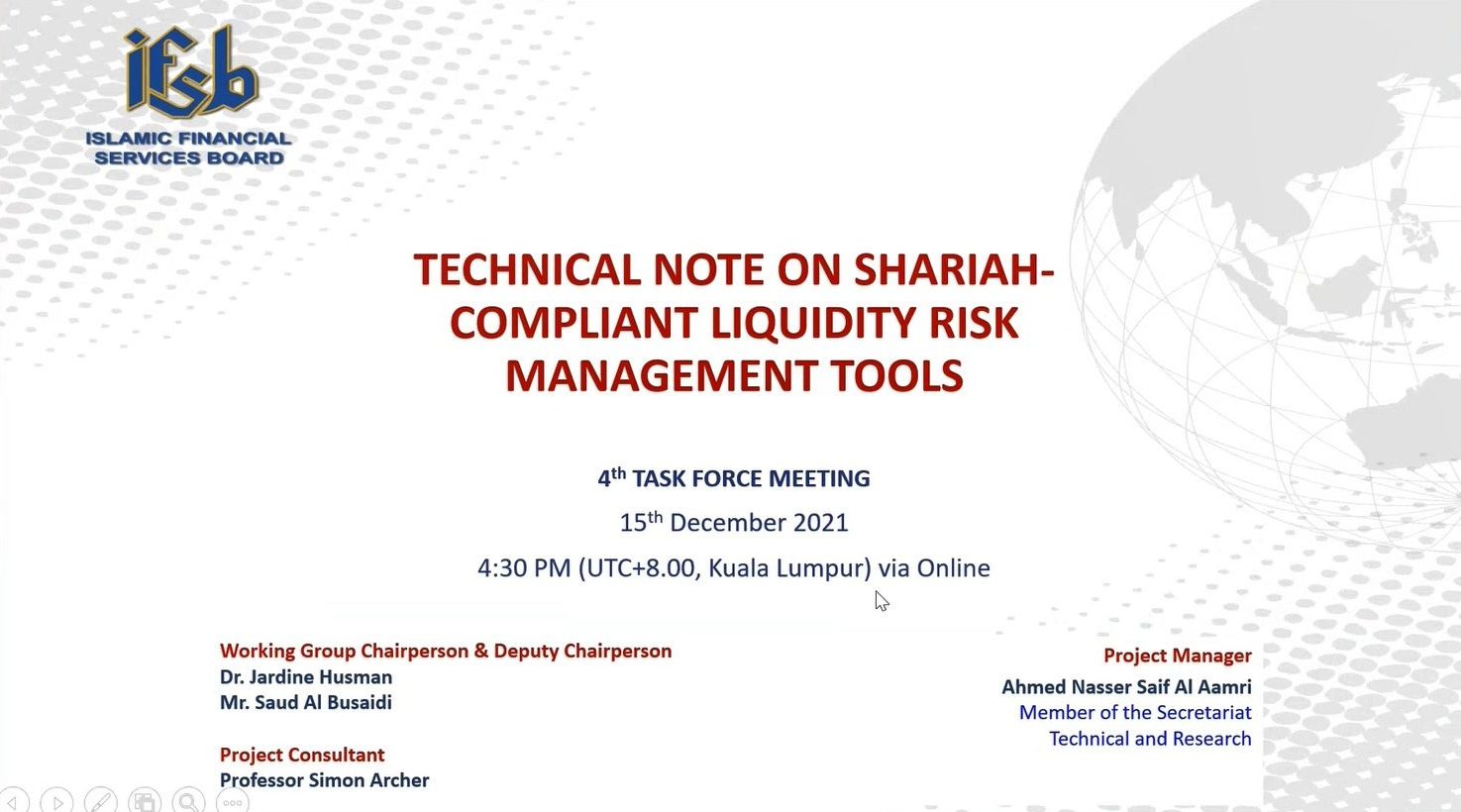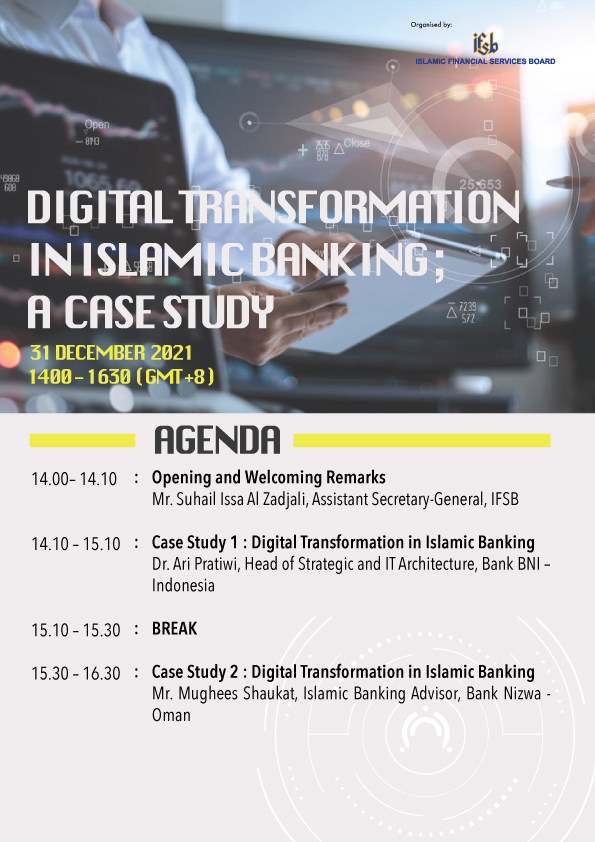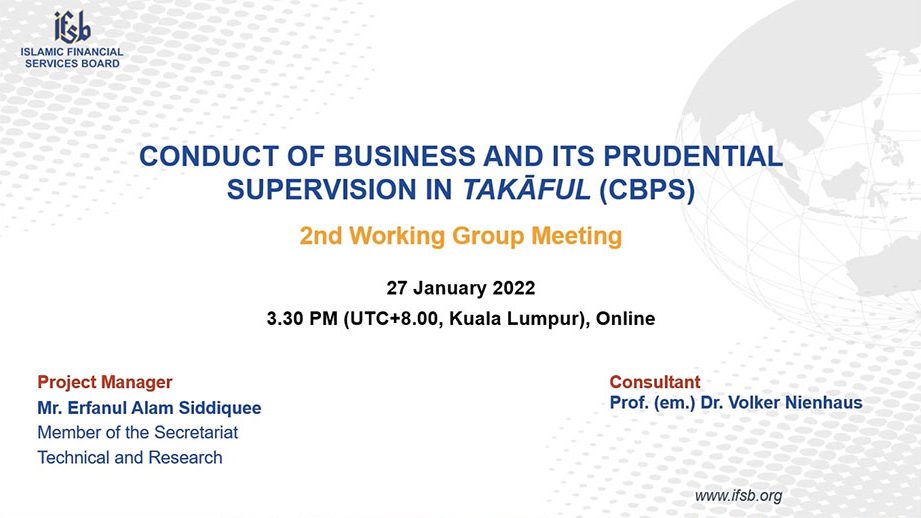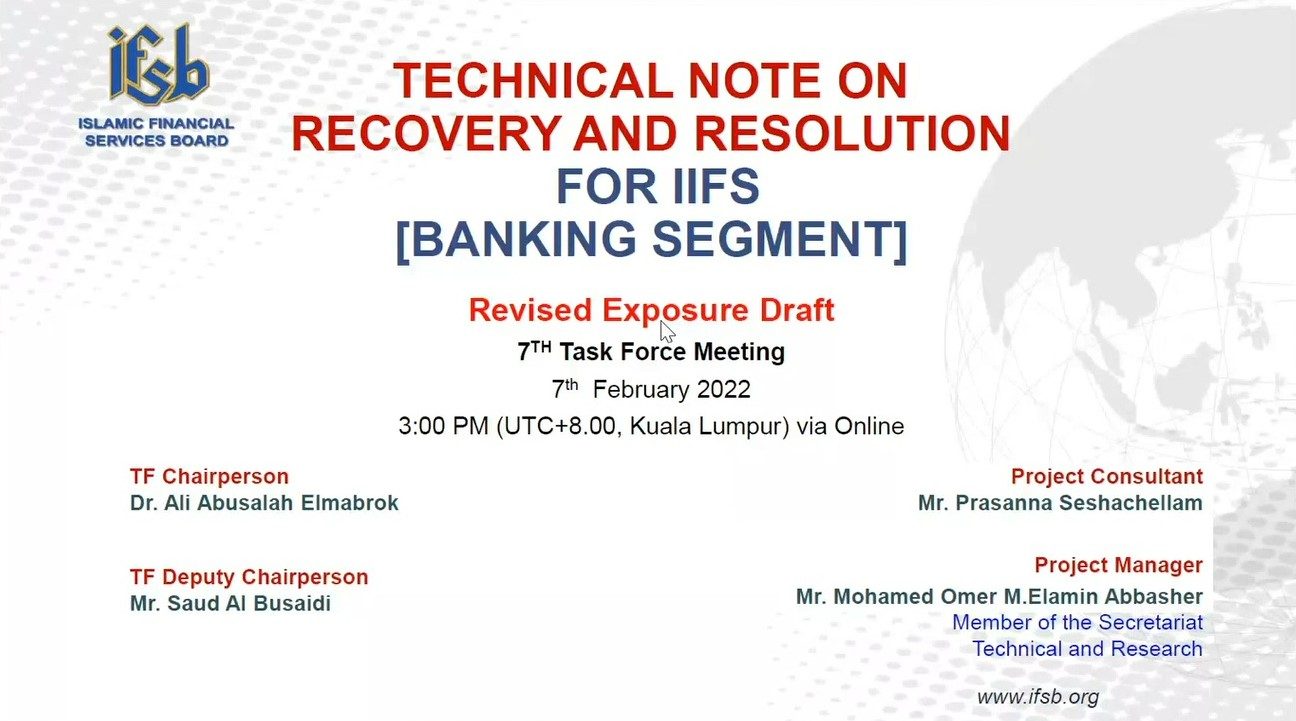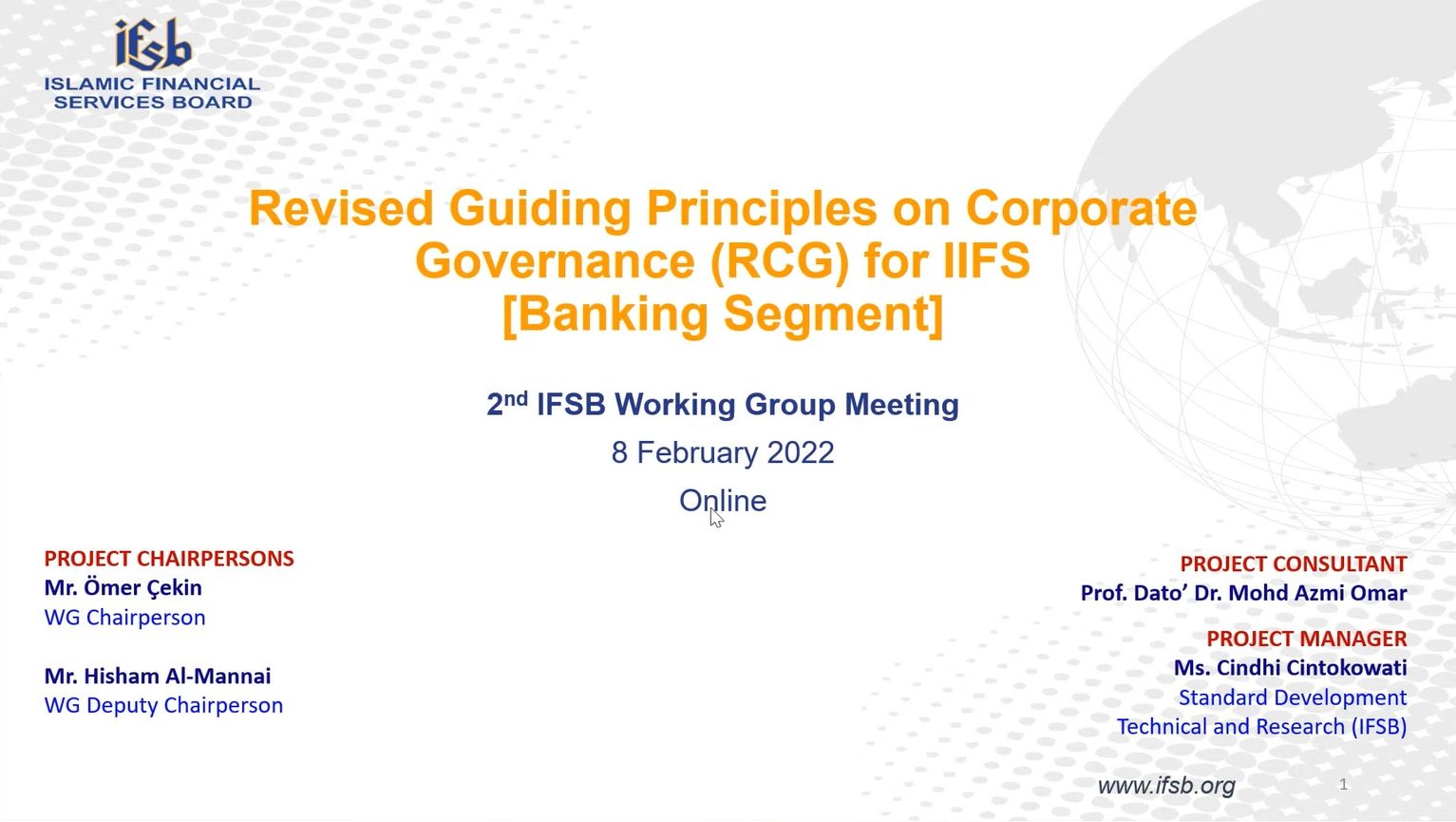Programme - Event Session(s) Date Time Topics Day 1 08/12/2021 16:00 - 16:30 Registration 16:30 - 16:45 Opening Remarks Dr. Bello Lawal Danbatta, Secretary-General, IFSB 16:45 - 17:00 Welcoming Remarks H.E. Khaled Mohamed Balama, Governor, CBUAE 17:00 - 17:10 Special Address H.E. Abdul Aziz Al Ghurair, Chairman, UBF 17:10 - 17:45 Public Lecture 1: Islamic Finance and Sustainability: Synergies, Strategies and Risks As the global economy gradually moves towards adopting a more sustainable development model, the Islamic finance industry has tremendous opportunities to meet the expanding needs in this segment. The principles of Islamic finance naturally form substantial synergies with the global sustainability agenda. While there have been several national-led as well as market-driven initiatives for issuance of sustainable Islamic financial products, a more substantial and wider transformation towards sustainable Islamic finance and related innovation requires collective action by policy-makers and regulators, market players and international bodies to ensure alignment and effectiveness of policies and strategies. Further growth in the supply of sustainable Islamic finance products also requires addressing some of the current gaps including information gaps to ensure the alignment of incentives, results measurement and effective risk management. The session aims to discuss the potential strategies and opportunities to harness the synergies between Islamic finance and sustainable development and important policy considerations. 17:45 - 18:15 Break 18:15 - 18:25 Keynote H.E. Dr. Reza Baqir, Governor, SBP 18:25 - 19:00 Public Lecture 2: Cybersecurity in the Era of Digitalisation: Regulatory Perspective Digitalisation of financial services has emerged as a powerful disruptor that is rapidly reshaping the real economy and the financial sector on a global scale. While digitalisation of Islamic finance also has the potential to deliver environmental outcomes and support a transformation in financing for sustainable development, the impact of digital finance will depend on policy and regulatory measures that, among other things, minimise any potential negative and unintended consequences such as cyber security risks. Hence, cyber security threats have captured prominent regulatory attention, especially financial stability implications and increased systemic risks due to financial interlinkages. While cyber risk is not unique to Islamic finance, it is an equally significant concern that presents new regulatory and supervisory challenges. The session aims to discuss critical considerations and gaps from a regulatory perspective, to improve cybersecurity as more Islamic financial institutions embrace digitalisation of their products and services. 19:00 - 21:00 Dinner
